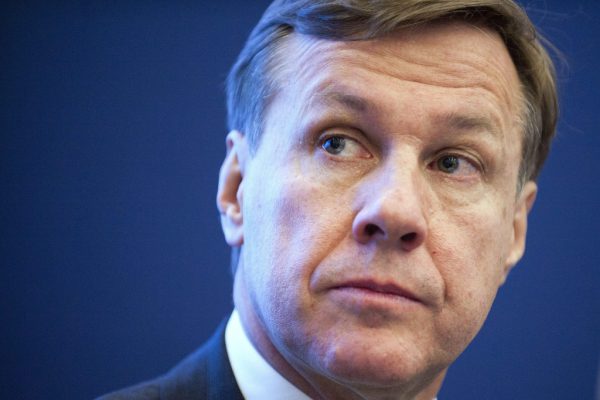Wrapping up a period of turmoil at Zurich Insurance, CEO Martin Senn has stepped down
Zurich Insurance CEO Martin Senn has stepped down, citing the abandoned $5.6 billion takeover of RSA and third-quarter losses following the Tianjin explosions
Martin Senn, chief executive of Zurich Insurance, has stepped down by mutual agreement after six years in charge and ten years at the company. He cited the abandoned takeover bid of RSA, third-quarter losses following the Tianjin explosions and setbacks in Zurich’s general insurance business. His resignation wraps up a period of turmoil for the Swiss insurance firm.
He comments: “After 10 very intense years with Zurich, I have decided to step down as CEO and to make way for new leadership. There have been some setbacks in recent months, but I am convinced that we have put in place the right measures for Zurich to reach its targets.” He continued by saying that although it was “personally disappointing”, the Zurich-based firm needed a CEO who could make a “five-year commitment” to new strategy.
The insurer is now searching for an external replacement, and has hired the London-based executive firm MWM Consulting, who helped Credit Suisse recruit Tidjane Thiam, to conduct the search. Chairman Tom de Swaan will take over as interim CEO with immediate effect. Board vice-president Fred Kindle will in turn take over de Swaan’s role.
Zurich profit falls 79% in third quarter of 2015
Senn, 58, began his career within Switzerland’s apprentice system, before climbing the ranks at Credit Suisse and then serving as chief information officer at Swiss Life Holding AG. He joined Zurich in 2006 as chief investment officer, and was widely acclaimed for his management of Zurich’s $200 billion investment portfolio following the 2008 crash. He took over the role of CEO in 2010, and again saw success. In 2013, Senn commented: “Not a single quarter of a loss through the crisis. In fact, not a single quarter of a loss through the past 10 years.”

Zurich Insurance Headquarters
But his departure doesn’t come as surprise given the company’s recent difficulties, at a time when insurers as a whole are facing price pressures and consolidation. In September, Senn had to abandon the months in the works £5.6 billion takeover of the $8 billion-valued UK-based RSA Insurance Group the day before Zurich was due to make its formal offer. The deal reportedly fell apart when a trading update revealed Zurich’s general insurance division was set to lose $200 million in the third quarter of 2015.
The downturn was accredited to $275 million in losses as a result of the mid-August explosions in Tianjin Port, China, alongside problems at Zurich’s car insurance business that saw the company lose $300 million in provisions related to US auto-insurance policies. The company also had to issue a profit warning following unexpected damage claims, and was hit with about $600 million in charges related to restructuring its business.
Overall, Zurich’s profit fell 79% to $207 million in the three months to September 2015, and shares were down almost 20% since March 2015. The company has since detailed a structural overhaul that will see 200 job losses in Switzerland, the US, Ireland, and the UK, and an exit from part of the US.
Zurich gives assurances that the company remains “on track”
Senn’s December departure was the biggest in a series of senior management reshuffles and resignations in recent years. In 2013, de Swaan took over from previous chairman Josef Ackermann, who stepped down after the suicide of chief financial officer, Pierre Wauthier. In June 2015, chief risk officer Axel Lehmann stepped down, and was replaced by the company’s chief investment officer. And in September the same year, Mike Kerner stepped down as head of general insurance, replaced by Kristof Terryn, leaving Terryn’s previous position as head of global life to be filled.
Zurich has said that Senn’s departure will not affect its strategy or financial plan, claiming that the company remains “on track”. De Swaan has clarified that Zurich will inform shareholders of plans for the $3 billion of capital which had been put aside for the RSA deal in its annual results. So, hopefully this latest resignation will bring this period of turmoil to a close, letting the insurer move forwards more positively with a new CEO.
















There are no comments
Add yours